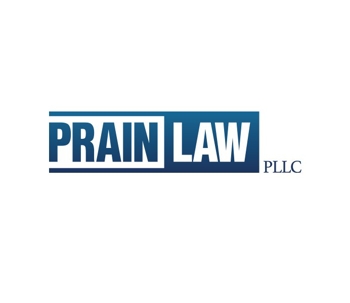 There is a crime called Michigan Assault by Strangulation. In reality, it is called "Assault by Strangulation or Suffocation." As a Michigan Assault Lawyer, Prain Law, PLLC concentrates its practice not just on criminal defense - within criminal defense, we concentrate specifically on defending those accused of Assault crimes in Michigan, including Michigan Assault by Strangulation under MCL 750.84(1)(b). However, just looking at the law itself doesn't tell us much about what the Prosecutor must prove for an accused to be found guilty of Michigan Assault by Strangulation or Suffocation, so this article will use the Standard Jury Instruction, 17.35, to explain in more detail. What the statute, MCL 750.84(1)(b) says:
There is a crime called Michigan Assault by Strangulation. In reality, it is called "Assault by Strangulation or Suffocation." As a Michigan Assault Lawyer, Prain Law, PLLC concentrates its practice not just on criminal defense - within criminal defense, we concentrate specifically on defending those accused of Assault crimes in Michigan, including Michigan Assault by Strangulation under MCL 750.84(1)(b). However, just looking at the law itself doesn't tell us much about what the Prosecutor must prove for an accused to be found guilty of Michigan Assault by Strangulation or Suffocation, so this article will use the Standard Jury Instruction, 17.35, to explain in more detail. What the statute, MCL 750.84(1)(b) says:
A person who does either of the following is guilty of a felony punishable by imprisonment for not more than 10 years or a fine of not more than $5,000.00, or both:
(a) Assaults another person with intent to do great bodily harm, less than the crime of murder.
(b) Assaults another person by strangulation or suffocation.
(2) As used in this section, "strangulation or suffocation" means intentionally impeding normal breathing or circulation of the blood by applying pressure on the throat or neck or by blocking the nose or mouth of another person.
As you can see, the maximum penalty for a conviction of Michigan Assault by Strangulation or Suffocation is 10 years in Prison (and higher if you are charged as an Habitual Offender). Also, it is important to note that a conviction for Michigan Assault by Strangulation or Suffocation does not require the pressure to be applied to the throat or neck or the blocking of the nose or mouth to occur for any particular period of time - it could be seconds or less. If you are charged with this crime and you choose to take your case to Trial, how would the Jury decide if you are Guilty or Not Guilty? What rules of law would they use? Since Jurors typically are not lawyers or legal experts, how would the law be presented to them? Well, here is the exact Jury Instruction that they would receive to help them decide the case one way or the other:
(1) The defendant is charged with the crime of assault by strangulation or suffocation. To prove this charge, the prosecutor must prove each of the following elements beyond a reasonable doubt:
(2) First, that the defendant committed a battery on [name complainant] . A battery is a forceful, violent, or offensive touching of another person or something closely connected with that other person.
(3) Second, that the touching must have been intended by the defendant, that is, not accidental, and it must have been against [name complainant] ’s will. It does not matter whether the touching caused an injury.
(4) Third, that the battery was committed by strangulation or suffocation. Strangulation or suffocation means intentionally impeding normal circulation of the blood or breathing by applying pressure on the throat or neck or by blocking the nose or mouth.
As you can see, the Jury Instruction for this offense significantly more detailed than the written law itself, adding other legal principles as the definition of a "Battery," the clarifying the intent aspect, and noting that no injury is required. Note also that the definition of "Strangulation" and "Suffocation" that the Jury would receive is substantially identical to that from the statute, MCL 750.84. **Also note that the law does not require that it has to be an accusation that arises out of a "Domestic Violence" situation - the two people involved could be anyone. But any Assault is a "specific intent" crime, meaning you must specifically intend to impede the normal circulation of the blood or breathing.
If you are accused of committing an act against someone that allegedly involves you putting your hands around their neck or covering up their mouth or nose, you are at risk of being charged with this 10 year offense. There is no question about it - you NEED a lawyer. Why not make it a Michigan Assault Lawyer who concentrates on defending those accused of Michigan Assault crimes? At Prain Law, PLLC, this type of case is what we do. Our consultations are free and confidential. Call Prain Law, PLLC anytime at (248) 731-4543. You can also get your questions answered by filling out the e-mail Contact Form.

